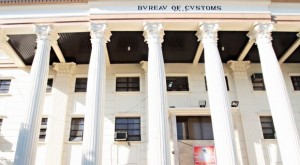Bleak prospects for Customs exam flunkers
MANILA, Philippines—It’s going to be a bleak new year for an undisclosed number of Bureau of Customs (BOC) personnel who flunked the first-ever general aptitude and competency tests jointly conducted by the agency and the Civil Service Commission (CSC).
Only 660 of more than 6,000 examinees, mostly outsiders, passed the initial tests for supervisory and nonsupervisory positions at the bureau.
The passers have been undergoing personal interviews by members of the bureau’s Personnel Selection Board.
Those who qualified for jobs in the Customs Intelligence and Enforcement Groups will also undergo physical tests.
Two passers interviewed by the Inquirer described the first round of examinations, held in August and September, as “tough” and “not your ordinary job admission test.”
Article continues after this advertisementJob applicants from Metro Manila and other parts of Luzon took the exams at several test centers in Quezon City, while their counterparts in the Visayas and Mindanao took the tests in Cebu City and Davao City, respectively.
Article continues after this advertisementDimpna Lejos, director of the customs bureau’s Administration Office, said some customs personnel also passed the tests.
Hardly surprising
But “many others, including some lawyers, failed the general aptitude test,” she said.
Lejos, a Department of Budget and Management (DBM) planning and budget specialist, has been detailed to the customs bureau since late 2013 to help reform one of the most corrupt government agencies.
She said it was “hardly surprising” that many bureau employees did not pass the tests.
“Did you know that many [of the more than 3,000] customs personnel are not qualified for the posts they are currently holding?” she said, noting that “some frontline positions, like those of examiners, are being handled by former electricians and security guards, as well as hotel and restaurant, food and nutrition, commerce and political science graduates and undergraduates.”
Positions bought
Lejos said “something’s terribly wrong with the bureau’s personnel recruitment process,” stressing that “the Bureau of Customs is not an ordinary government agency.”
“When I came in, I found that some employees obviously got their positions for a fee. Some turned out to be close relatives of customs old-timers, while others got in because of endorsements by politicians, among others,” she said.
But the bureau “will no longer tolerate nepotism,” she said.
“We’re no longer entertaining job applicants who have relatives in the bureau up to the fourth degree of consanguinity. This new policy is part of the program to reform the [customs bureau],” she said.
Another customs official tagged an influential religious group as the alleged “padrino” of several former and current customs officials and employees.
The source, who asked not to be named, identified the group but asked that its name not be published.
Earlier Customs Commissioner John Phillip Sevilla assured the public that the new customs personnel will be hired “not on the basis of endorsements but on their merits and assessment for being fit for the job.”
No more nepotism
“Also, no more nepotism, which can be a cause of corruption,” he said.
Sevilla expressed confidence that the bureau’s partnership with the CSC “will further bolster the bureau’s selection and hiring process.”
“This is a landmark partnership that will further elevate our hiring process. With the BOC-CSC partnership, we are positive that we will be able to put into fruition processes that will ensure that all future customs employees are competent, professional and ethical public servants,” he said.
Faster, better service
In a statement, Sevilla said the hiring of new employees would enable the agency to provide a faster and better service.
“On the average, we are handling more than 3,000 import entries and over 6,000 individual importation items every day… Around 4,000 containers arrive in the country each day that we need to inspect. In order to facilitate these transactions, we need additional manpower,” he said.
But there are only a little more than 3,000 employees in the bureau to do the job, he said, adding “this lack of manpower is further aggravated by natural attrition due to retirement and resignation, as well as dropping from the rolls and dismissal from the service.”
